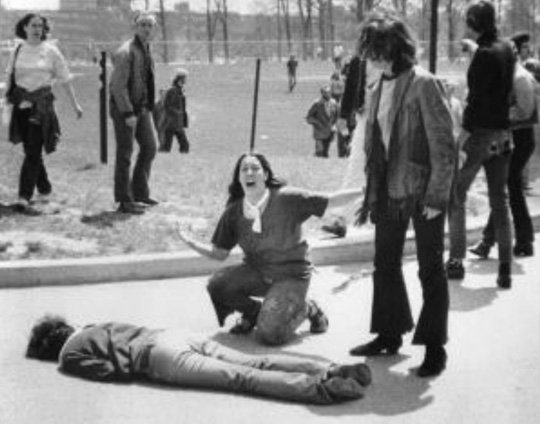
This originally appeared at Antiwar.com on May 4, 2015
It’s been 45 years since draft-deferred Ohio National Guardsmen aimed their M-1 rifles and .45 pistols at unarmed Ken State College students, killing four and wounding nine on May 4, 1970. You have to be well into middle age now to remember that day. My memory is stirred whenever I look at three photos: John Filo’s striking shot of teenager Mary Ann Vecchio on her knees weeping as she bends over student Jeffrey Miller’s body, I photo I took of Jeffrey’s grieving mother for a magazine my son Alex once edited, and a picture of two of the forever crippled in wheelchairs, KSU student Dean Kahler and wounded Marine Vietnam vet Ron Kovic of Born on the Fourth of July fame.
On the 41st anniversary of the shootings in 2011, the Cleveland Plain Dealer, the state’s largest newspaper, concluded, “There has never been a completely satisfactory explanation for why the Guard fired.” In fact, it went on, “The central unresolved question in the Kent State affair has been why several dozen Ohio Guardsmen pivoted in unison and fired” and for 13 agonizing seconds killed and wounded so many of their peers. The previous year the paper had reported the finding of an audio recording where a Guard office was said to shout, “All right, prepare to fire.” This led to an editorial urging the state to take another look “and give full account of that tragic day.”
Continue reading “Kent State 1970: We Need a Serious Look at What Happened and Why”



